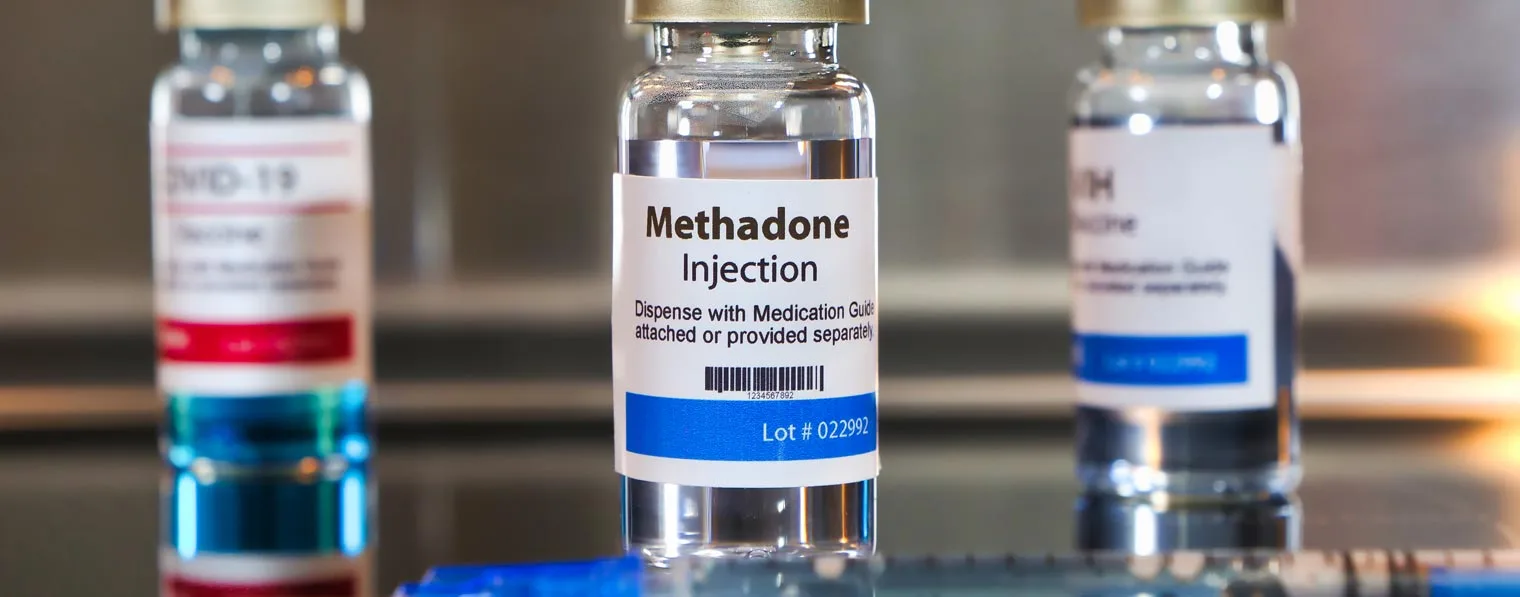Does Methadone Make You Tired?
Get Answers on Methadone and Support for Alternatives at Icarus
Methadone treatment is a key tool in helping someone end their struggles with substance abuse, particularly opioid addiction. If you or a loved one has a diagnosis of opioid use disorder, you are probably aware of this medication-assisted treatment plan.
One question many people have: Does methadone make you tired?
Some past clients have described their struggles – with either man-made opioid drugs or prescriptions – as a huge jigsaw puzzle. The box holding the pieces has been dumped onto a tabletop, pieces scattered in total disarray. Each puzzle piece is like part of one’s being, lost in addiction.
But that same puzzle can be reassembled with time and patience – and so can you or your loved one. Going to a rehab center for help is like finding the corners and edges of the puzzle: the first steps to being clean and sober. But the hard work comes in over the next few weeks; the puzzle is slowly completed as one heals.
Read on, as the professional team from Icarus Behavioral Health in Albuquerque, New Mexico, is here to help. We will answer your questions about the recovery process for overcoming opioid addiction and how you can end a drug addiction with our alternatives to methadone treatment.
What Is Methadone Treatment and Its Benefits?

Methadone maintenance treatment (MMT) is a type of medication-assisted treatment (MAT). A doctor immediately considers this therapy when someone struggles with heroin addiction or prescription painkiller abuse.
Even the Centers for Disease Control and Prevention (CDC) agrees that methadone is effective. Their resource page for opioid abuse notes that medication-assisted treatment with methadone “blunts or blocks the effects” of opioid drugs.
Methadone is a synthetic opioid. Thus, while we provide you with information on methadone, the Icarus team prefers other prescriptions to help you reduce those withdrawal symptoms while you get clean and sober.
Here are the possible benefits of taking methadone treatments when under the direct care of a doctor:
Methadone Maintenance Treatment Reduces Withdrawal Symptoms and Cravings
Throughout your addiction, your brain has come to rely on heroin or other opioids for pain relief or its euphoric feeling – both, in some cases. Taking methadone can help in easing your cravings and the withdrawal symptoms you’d otherwise face if you stopped cold turkey.
Because your brain depends on the opioid drug so greatly, the shock of stopping use abruptly can be dangerous.
Prescription Drug Medical Help – Reach Out Now!
Lowers Your Risks of HIV and Hepatitis C (Common in Opioid Use Disorder)
Some find it practically impossible to quit using opioids without methadone treatment. Using methadone treatment is less harmful than alternatives found through using street drugs. One such risk in this regard is contracting HIV or Hepatitis C from IV drug use, which can spread from sharing needles.
These infectious diseases are more common among people who live with opioid use disorder than in people who don’t use them.
Methadone Can Be Part of an Evidence-based Treatment Plan (In Some Cases)
Taking methadone rarely occurs as part of a truly holistic treatment plan. Our clients receive a comprehensive, individualized program that includes counseling, therapy, and learning new coping tools along with methadone alternatives like Suboxone.
At Icarus Behavioral Health, we prefer to use alternative treatments to Methadone to give you another treatment choice.
The Effects of Methadone Are Long-Lasting
The methadone effect is long-lasting. The medication works by replacing more harmful illicit drugs and prescriptions. However, metabolizing it is slower; most clients take it once daily.
The effects of methadone are also less “euphoric.” That means you will have fewer cravings and side effects when it’s time to start methadone withdrawal.
How Does Methadone Work?
Methadone is a long-acting synthetic opioid. It works by binding to the same opioid receptors in the brain as heroin, prescription pain relief medications, or other synthetics. By occupying those receptors, methadone replaces the more harmful and addictive.
As mentioned earlier, the effects of methadone are longer-lasting than other opioids. Therefore, the longer cycle helps avoid the cycle of highs and lows of shorter-lasting drugs.
You might receive treatment in oral pills of liquid methadone for those who can’t take tablets.
Does Methadone Make You Tired? 3 Ways It Can

Almost every prescription drug has potential side effects – methadone’s not an exception to that rule. Taking this opioid use disorder medication can cause poor sleep quality and thus increased daytime sleepiness.
Specifically, here are a few ways it can cause alertness and cognitive function issues and sleep deprivation:
1) Sleep-disordered Breathing Problems
Methadone can sometimes cause breathing problems as you sleep. It can also lead to sleep disorders like sleep apnea. That’s because it depresses the respiratory systems in the brain.
The risk of developing this is highest when taking methadone in large doses or for people with other breathing problems, such as asthma or COPD.
Be sure to notify your doctor if you have any physical health diagnoses.
Get Effective Detox and Rehab Options – Call Now!
2) Sleep Disturbances or Unable to Fall Asleep Quickly
Some people who take methadone treatments have a hard time falling asleep and or have disrupted sleep or are awakened frequently during the night. This issue usually resolves as you step down to lower dosages of methadone.
3) Changes in Sleep Regulation
Methadone can impact the REM and non-REM sleep stages, leading to sleep deprivation. When one’s sleep efficiency declines, it can lead to drowsiness during the day. You may feel anything from mildly tired to extreme fatigue.
When considering these sleep problems, remember that you want to take methadone for the short term, not the long haul, if possible.
Keep reading – the next section addresses some proven strategies to deal with sleep deprivation and drowsiness.
How to Combat Tiredness and Minimize Sleep Problems When Taking Methadone

The sleep problems while using methadone treatment can be a nuisance. But remember that it’s not forever. It’s just another piece of that puzzle – another step toward a clean and sober life.
In the meantime, here are some suggestions to help ease the drowsiness you might feel during the daytime:
Staying Hydrated Can Keep Energy Levels High
When you lack hydration, your body can become sluggish. Drink plenty of water when taking methadone. Not only does water ease the sleep loss symptoms, but it also helps avoid other symptoms that may arise.
Physical Activity Plays a Significant Role in Your Well-being
When feeling tired, get up and take a brisk walk or do light yoga. You might not feel up for it, but exercising can trigger a release of dopamine, the brain’s feel-good chemical. It will give you a burst of energy to help you make it over the hump.
Self-report the Sleep Problems to Your Doctor or Clinician
Remember that you take methadone treatment under the guidance of a doctor. Tell the clinician that you feel tired. They can make methadone dosing adjustments to help you recover from the sleepiness.
What Are the Other Side Effects of Methadone?

Besides sleepiness, you might experience a few additional methadone side effects. Here are some of these opioid addiction treatment methods:
Digestive Issues and Methadone Use
Some who take methadone report stomach problems. These can include constipation, nausea, or stomach flu-like symptoms. If this lasts for more than a day or two – or you develop dehydration – the doctor may move you to a lower but still stable dose of methadone.
Mood Changes and Depression
Some who take methadone to beat drug abuse and addiction report depression, anxiety, or mood swings. Some doctors prescribe low dose antidepressants to help offset these side effects of methadone.
Because you are in a therapeutic setting, you will also have access to a counselor to learn holistic techniques to manage these feelings.
Weight Gain After Acute Use of Opioids
Weight gain may be one of the side effects of methadone. However, it’s also common when ending a struggle with opioids. Because opioid drugs depress the appetite, they often cause unnatural weight loss.
The process reverses when ending the addiction. Your body functions, including metabolism and blood sugar levels, are returning to normal as you progress in your methadone program.
In many cases, gaining weight after using opioids is a sign of significant progress. It’s an indicator that you are regaining your health. While there is a reality of nutritional deficiencies, the myth that methadone gets in your bones is just that, a myth.
Disruption in Serotonin Levels
Serotonin levels may be related to the mood swings mentioned earlier. Serotonin is a key neurotransmitter that helps regulate mood, sleep, and appetite (all side effects mentioned so far).
The relationship between serotonin and methadone is still under investigation. However, a doctor can prescribe medications that can stabilize serotonin.
Icarus Prefers Alternatives to Methadone Medications

When you take methadone, you run a risk of developing tolerance or replacing the addiction to opioid drugs with this replacement drug. To avoid that, Icarus takes a thoughtful, multi-pronged approach to treatment.
You will work hard in counseling, discovering any root causes or trauma that led to your addiction. The doctor and care team will monitor you and provide you with medication-assisted treatments that are less addictive than methadone. Don’t worry – they’re still very effective!
You will also learn holistic care to help bring back your energy levels to what they used to be, before those days of substance abuse.
Up To 100% of Rehab Costs Covered By Insurance – Call Now!
Reach Out to Icarus for Support to Come Off Methadone
If you are ready to end your struggle with substance abuse, Icarus Behavioral Health is here to assist you. Our approaches to methadone detox and treatment are evidence-based and effective. We will help you manage the symptoms that often accompany withdrawal from opioid drugs (prescription medication or otherwise).
Like those scattered puzzle pieces, you can piece your life back together. You are no longer alone in trying to complete the puzzle – your doctor and the entire care staff at Icarus Behavioral Health can guide you through reconstructing it.
Connect with our team today to get help right away.











